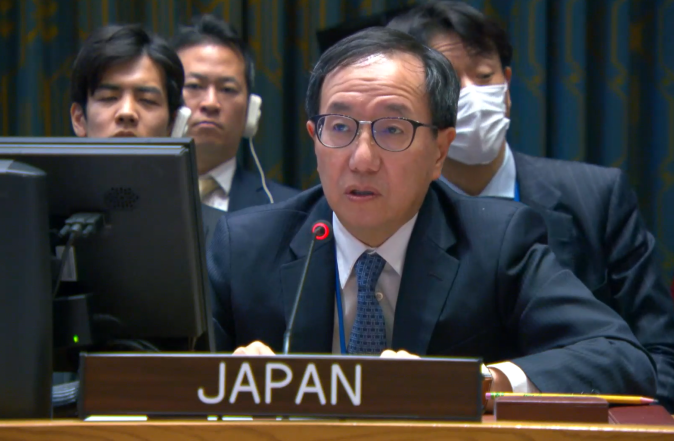紅海情勢に関する安保理緊急会合における山﨑大使ステートメント
令和6年1月3日

(As delivered)
Thank you, Mr. President.
Since this is the first Security Council meeting in this month, I’d like to also join in congratulating your assumption of the presidency, and I also would like to welcome the new non-permanent members of the Council: Algeria, Guyana, the Republic of Korea, Sierra Leone, and Slovenia. I look forward to working with you very closely.
On today’s issue, first I would like to express my appreciation to ASG Khiari and Mr. Dominguez of IMO for their comprehensive briefings on this critical issue.
Nearly three months have passed since the devastating conflict in Gaza began. Now, as we had feared, the conflict is spilling over into the wider region. In particular, Japan has grave concerns about the increasingly volatile situation in the Red Sea.
Almost weekly or even more frequently, and as recently as yesterday, Houthi militants have been attacking commercial vessels with missiles and drones, and today we have heard also a news report in addition, and they have signaled that they will not stop these hostile activities.
Japan is outraged by the armed “seizure” and continued holding of the Japanese-operated vessel Galaxy Leader and its 25-person multinational crew since November 19th of last year. It is unacceptable that the innocent crew has been detained for more than 40 days. We see no reason to tolerate such an injustice, and strongly demand the release of the Galaxy Leader and its crew immediately and unconditionally.
The Houthis claim that they are acting in solidarity with the Palestinians in their fight against Israel, but there is no justification to attack commercial vessels engaged in lawful transit through the Red Sea.
Mr. President,
The Red Sea is a critical sea lane for global maritime transportation. The Houthis’ threats to maritime security and freedom of navigation in this important waterway have already disrupted international trade.
Indeed, major international shipping companies, including Japanese ones, have been forced to pause their operations or take the more costly, energy-intensive, and time-consuming route around the Cape of Good Hope (in South Africa) for their travel between Asia and Europe. This would cause a significant negative impact on supply chains and the global economy.
With all of this in mind, Japan unequivocally condemns the Houthis’ reckless conduct, and calls for the Houthis and other regional stakeholders not to engage in further destabilizing actions in the Red Sea and the broader region.
It is now time to think about next steps.
One month ago, the Security Council issued a press release on the maritime threats posed by the Houthis. This reaction was timely given the surge of alarming incidents. However, regrettably, there has been no sign of these attacks abating, and instead the Houthis are even escalating their activities. The Security Council should not let this continue.
In this regard, and in view of the urgency and importance of the matter, Japan believes that the Security Council should take an appropriate action to deter additional threats by the Houthis and maintain international peace and security.
I thank you, Mr. President.
